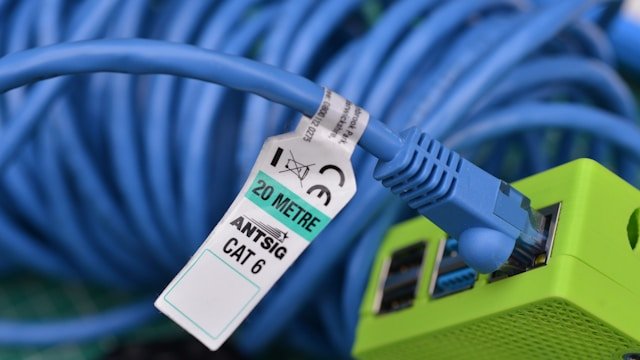Facts About Poly Technologies You Didn’t Know (But Should)
What’s the Buzz Around Poly Technologies?
Most people think Poly Technologies is just another shady arms dealer. But honestly, that’s a pretty narrow way to look at it. While it’s true they deal in military tech, a lot more is happening under the surface. This Chinese powerhouse plays a massive role in the global defense industry, and it’s backed by the Chinese government itself.
So, what makes Poly Technologies so special? Why do international defense experts, politicians, and even watchdog organizations keep such a close eye on them?
That’s exactly what we’re going to unpack here.
In this blog, you’ll learn:
- Who owns and runs Poly Technologies (Hint: It’s not your average CEO).
- How they went from a local player to a global military supplier.
- The types of advanced tech they’re pushing into the world market.
- And yes, the controversies you probably did hear about.
Whether you’re here because you Googled “what does Poly Technologies do” or you’re just curious about their connection to the Chinese military, you’re in the right place. Stick around—some of the stuff you’ll read might surprise you.
The Origin Story – Who Owns Poly Technologies?
Let’s clear something up: Poly Technologies isn’t some startup that magically popped up in the defense world. It’s a subsidiary of the China Poly Group Corporation, which is one of the largest state-owned enterprises in China. That alone should tell you it’s got some serious backing.
China Poly Technologies was established back in the 1980s, and from the get-go, its mission was tied to China’s strategic interests. While many companies aim to turn a profit, Poly Tech is about power, influence, and national defense. It operates under the supervision of China’s central government and has strong ties with the Chinese military, making it one of the country’s most influential defense contractors.
Here’s the real kicker—Poly Technologies isn’t just selling weapons inside China. Nope. They’re selling to governments and private entities all over the world. That’s why you’ll see them pop up in articles discussing the global arms trade, military exports, and even international sanctions from time to time.
So yeah, when you read about Poly Technologies and Chinese military connections, it’s not just talk. They play a real, active role in arming foreign militaries, shaping international defense deals, and pushing China’s defense strategy across borders.
And guess what? Because they’re state-owned, they don’t operate like a normal business. There’s less transparency, more political influence, and a lot of strategic decision-making happening behind closed doors. That’s part of why Poly Technologies’ reputation has raised eyebrows in places like the U.S., Europe, and even the United Nations.
In simple terms:
If you’re wondering, “Who owns Poly Technologies?” — the answer is China. And that ownership gives them power that most other companies could only dream of.
Poly Technologies Products – More Than Just Weapons
Let’s break a common myth right away—Poly Technologies isn’t just a gun shop for governments. A lot of people think they only sell small arms or basic military gear. But the truth is, their product lineup is way more advanced and diverse than most realize.
From high-end missile systems to cutting-edge surveillance tech, Poly Technologies’ defense products list reads like something out of a sci-fi movie. We’re talking about stuff like:
- Military drones that rival top models globally
- Electronic warfare systems for battlefield communication and control
- Anti-aircraft missiles, artillery systems, and coastal defense weapons
- Even armored vehicles and tactical support equipment
They also specialize in advanced radar systems and command & control platforms, which are key in modern warfare. In short, they don’t just arm soldiers—they empower entire armies with integrated defense solutions.
And yes, they’re pushing hard into the unmanned vehicle sector, especially with drones. If you searched “Poly Technologies drone technology”, you’d find they’ve been developing UAVs that can be used for both surveillance and combat. These aren’t toys—they’re military-grade drones with serious capabilities.
You’ll also come across their involvement in surveillance systems, which is a hot topic in the world of defense electronics. China has been exporting. These systems are often used by governments for border security, riot control, and internal intelligence gathering.
So, next time you hear the name Poly Tech, don’t just think guns. Think multi-layered defense technology designed for modern, high-tech warfare.
Global Reach – How Far Does Poly Technologies Go?
A lot of folks assume Poly Technologies only operates within China’s borders. That couldn’t be further from the truth. Their reach is truly global, and that’s exactly why they’re always in the news.
Over the years, Poly Technologies’ global presence has grown fast. They’ve made weapons deals with countries in Asia, Africa, the Middle East, and even Latin America. Some of these transactions are open and legal, while others have stirred up some real controversy.
Their global expansion didn’t happen by accident. With the full backing of the Chinese government, Poly Tech has been actively pushing into emerging markets, especially where Western defense companies face restrictions or political red tape. And that’s helped them become one of the top names in the global arms trade.
So if you’ve ever wondered, “Where does Poly Technologies export weapons to?”—the answer is: almost everywhere that’s open for business.
And that’s not all. Besides military sales, they also provide after-sales training, maintenance, and tech support, which makes them a full-service defense partner. This strategy helps them build long-term relationships with foreign militaries and governments.
Some countries even rely heavily on Poly Technologies’ defense products for their national security. That’s how deep their impact goes.
You might also see headlines about how Poly Technologies’ role in the global arms trade raises red flags for international watchdogs. There’s concern about who they sell to, especially in regions affected by civil conflict or where human rights issues are at play. Still, their market share in arms exports keeps growing, mainly because they offer competitive pricing and less political interference compared to Western firms.
Bottom line? Poly Technologies is not a local player. They’re deeply involved in the international defense market and are changing the way global military suppliers operate.
Controversies & Sanctions – Not Everything Is Black and White
A lot of people assume every move made by Poly Technologies is illegal or shady. That’s not entirely true. While the company has definitely been involved in some global controversies, not everything they do is outside the law.
That said, let’s not sugarcoat it—Poly Technologies has faced international sanctions, especially from Western nations like the United States. The biggest concern? Weapons sales to sanctioned countries and groups involved in civil unrest or human rights abuses.
For example, there have been reports of Poly Technologies violating UN arms embargoes or supplying military-grade equipment to unstable regions. These accusations have led to restrictions, travel bans on key personnel, and even asset freezes in certain countries.
Many critics argue that Poly Technologies ignores international arms regulations in favor of profits and strategic influence. That’s a serious claim, and it’s why the company often pops up in discussions about illegal arms trading, dual-use tech exports, and China’s defense policy.
But to be fair, Poly Tech’s legal team often defends their deals as being within the limits of local and international laws. They claim they only sell to governments, not rebel groups or militias. Whether or not you buy that is up to you, but the truth is somewhere in the gray zone.
Their involvement in controversial arms deals has also led watchdogs and NGOs to push for more transparency in global arms sales. Because of this pressure, countries that import from Poly Technologies often face international scrutiny, especially when conflicts break out or political tensions rise.
In short, Poly Technologies controversies are real, but the narrative isn’t always one-sided. It’s a mix of strategic state interest, legal loopholes, and global power plays.
Relationship with Chinese Military and Government – A Powerful Connection
Here’s another myth to bust: Poly Technologies doesn’t just “work with” the Chinese military—they’re a part of it.
The company isn’t your typical private defense contractor. It’s deeply embedded in the Chinese government structure, operating under the massive umbrella of China Poly Group Corporation, which is fully state-owned. That’s like saying they don’t just get orders from the government—they are the government, at least in the business sense.
Now, why does this matter? Because their connection with the People’s Liberation Army (PLA) gives them unmatched access to military research, funding, and strategic planning. This close relationship helps them stay ahead in the global defense game, especially when it comes to next-gen weapons development and high-tech military innovations.
You’ll often find Poly Technologies participating in Chinese military exhibitions, showcasing their latest tech with pride. Many of these events are attended by top PLA officials and defense ministries from other countries. It’s not just about showing off—it’s about building influence and proving China’s military technology capabilities.
Some experts even describe them as an extension of China’s military-industrial complex, helping to export not just weapons, but also China’s geopolitical influence. That’s a big deal, especially in regions where Western defense players can’t operate freely.
So, when you read about Poly Technologies and the Chinese government working closely, it’s not a casual partnership. It’s strategic, intentional, and tightly woven into China’s long-term defense and foreign policy goals.
Poly Technologies vs Other Defense Contractors – Is It Really That Different?
A lot of folks think Poly Technologies is just a Chinese version of Lockheed Martin or BAE Systems. But that’s not the case. Sure, they all deal in defense equipment, but when you dig a little deeper, you’ll see some major differences.
Let’s start with the basics. Western defense contractors are mostly private companies. They rely on government contracts, yes—but they also have shareholders, public accountability, and follow strict export laws. On the other hand, Poly Technologies is a state-owned enterprise backed directly by the Chinese government. That means it operates with a lot more freedom (and fewer restrictions).
If you’re searching “Poly Technologies vs Lockheed Martin”, you’ll come across tons of comparisons—but the structure, ethics, and operations don’t really line up. While Lockheed needs approval from Congress to export advanced tech, Poly Tech often bypasses that kind of red tape, especially when dealing with politically sensitive regions.
And here’s another thing—pricing. Poly Technologies is known for offering cost-effective military solutions, making it a favorite in countries with limited defense budgets. Western suppliers usually come with a hefty price tag, plus long procurement processes. That gives Poly Technologies a major competitive edge in many developing nations.
Tech-wise, Western firms may still have the upper hand in some areas, like stealth aircraft, AI-based warfare systems, or space defense technologies. But Poly Tech is catching up fast, especially with military-grade drone systems, radars, and smart battlefield gear.
So no, they’re not the same. Poly Technologies has carved out its own unique space in the global arms market, blending government muscle with aggressive export tactics.
Technology Behind Poly Tech’s Edge – How Are They Advancing So Fast?
One of the biggest assumptions out there? That Chinese defense companies just copy tech from the West. That’s outdated thinking. While it might have been true a couple of decades ago, today Poly Technologies is investing heavily in R&D, and it’s paying off.
Let’s talk about their core tech strengths:
- AI-powered defense systems
- Drone swarms for battlefield dominance
- Advanced missile guidance systems
- Surveillance satellites and thermal imaging tools
Their success isn’t just about hardware—it’s also in software and integration. They’re developing smart systems that can link multiple military platforms, just like network-centric warfare strategies used by the U.S. and NATO forces.
If you dig into “Poly Technologies AI in defense systems”, you’ll find that they’re working on real-time data processing tools to help soldiers and commanders make quicker decisions in combat. That’s next-level stuff, and it shows how Poly Tech’s military innovation is becoming a serious force.
They’re also diving into dual-use technologies—stuff that works in both the commercial and military sectors. Think 5G communication, facial recognition, autonomous driving, and even quantum encryption. These give them a huge boost not just on the battlefield, but also in terms of international tech partnerships.
Another big reason for their tech rise? Government funding and collaboration with Chinese universities. It’s a well-oiled machine—academic brains plus government money equals fast-paced innovation.
So yeah, Poly Technologies isn’t just a reseller of Chinese weapons anymore. They’re becoming a serious global competitor in military technology, with research labs and test facilities pushing out next-gen solutions every year.
Global Reach & Export Strategy – How Poly Technologies Expands Its Market
Some people still think Poly Technologies only sells within China or to a few nearby allies. That’s not even close to true. The company has a pretty aggressive international defense export strategy.
Over the years, Poly Technologies has expanded into Africa, Latin America, Southeast Asia, and even parts of Eastern Europe. Their approach is simple: offer affordable, reliable military equipment with flexible payment plans—something many Western defense contractors can’t match.
Countries with limited defense budgets often turn to Poly Tech for low-cost military solutions like:
- Small arms and light weapons
- Radar and anti-aircraft systems
- Armored vehicles
- Tactical drones
- Border control tech
And here’s the smart part—they don’t just dump products and leave. Poly Technologies often bundles training, after-sales support, and upgrades, making it a long-term relationship, not a one-off deal.
They’re also known for stepping in when Western arms suppliers back out due to political reasons or export restrictions. This gives them a wide-open playing field in regions that need immediate defense help but can’t wait months for approvals.
You’ll also see Poly Technologies’ weapons trade exhibitions popping up in global arms expos, showing their interest in expanding military exports. This international visibility boosts their reputation as a serious global defense player.
In short, their strategy is smart, targeted, and very effective—especially in markets where cost, speed, and loyalty matter more than brand reputation.
Future Outlook – What’s Next for Poly Technologies?
A lot of people think Poly Technologies will stay in the shadows, quietly selling arms while bigger players steal the spotlight. That’s unlikely. If anything, they’re preparing to go head-to-head with the biggest defense giants out there.
Here’s why:
- Rising global demand for low-cost defense systems
- Geopolitical shifts are driving nations to diversify arms suppliers
- Massive investment in cutting-edge military research
- Increased use of AI, drones, and cyber warfare tools
The future for Poly Technologies in global defense markets looks promising—especially if they keep up the pace on innovation, digital warfare capabilities, and cross-border military collaborations.
They’re also expected to play a bigger role in China’s Belt and Road Initiative (BRI), offering military support and tech to partner nations in exchange for strategic positioning.
However, it’s not all smooth sailing. The company will need to navigate growing international scrutiny, stricter export controls, and increasing competition from both East and West. But with their experience, funding, and connections, they’re in a strong position to adapt.
So whether you’re watching from a policy angle or a market one—Poly Technologies is definitely a name to keep on your radar.
Final Words: Is Poly Technologies the Future of Global Defense?
Look, love them or hate them, Poly Technologies isn’t going anywhere. They’ve built a powerful brand around state-backed influence, affordable defense solutions, and rapid tech advancement. They may not follow the same playbook as Western defense contractors, but that’s exactly what makes them different—and effective.
In a world that’s getting more complex by the day, Poly Technologies will keep playing a big role in shaping global military dynamics. Whether you’re a defense analyst, a curious observer, or someone in the industry, one thing’s for sure: You can’t ignore Poly Technologies anymore.







